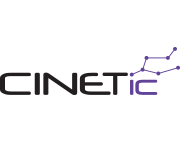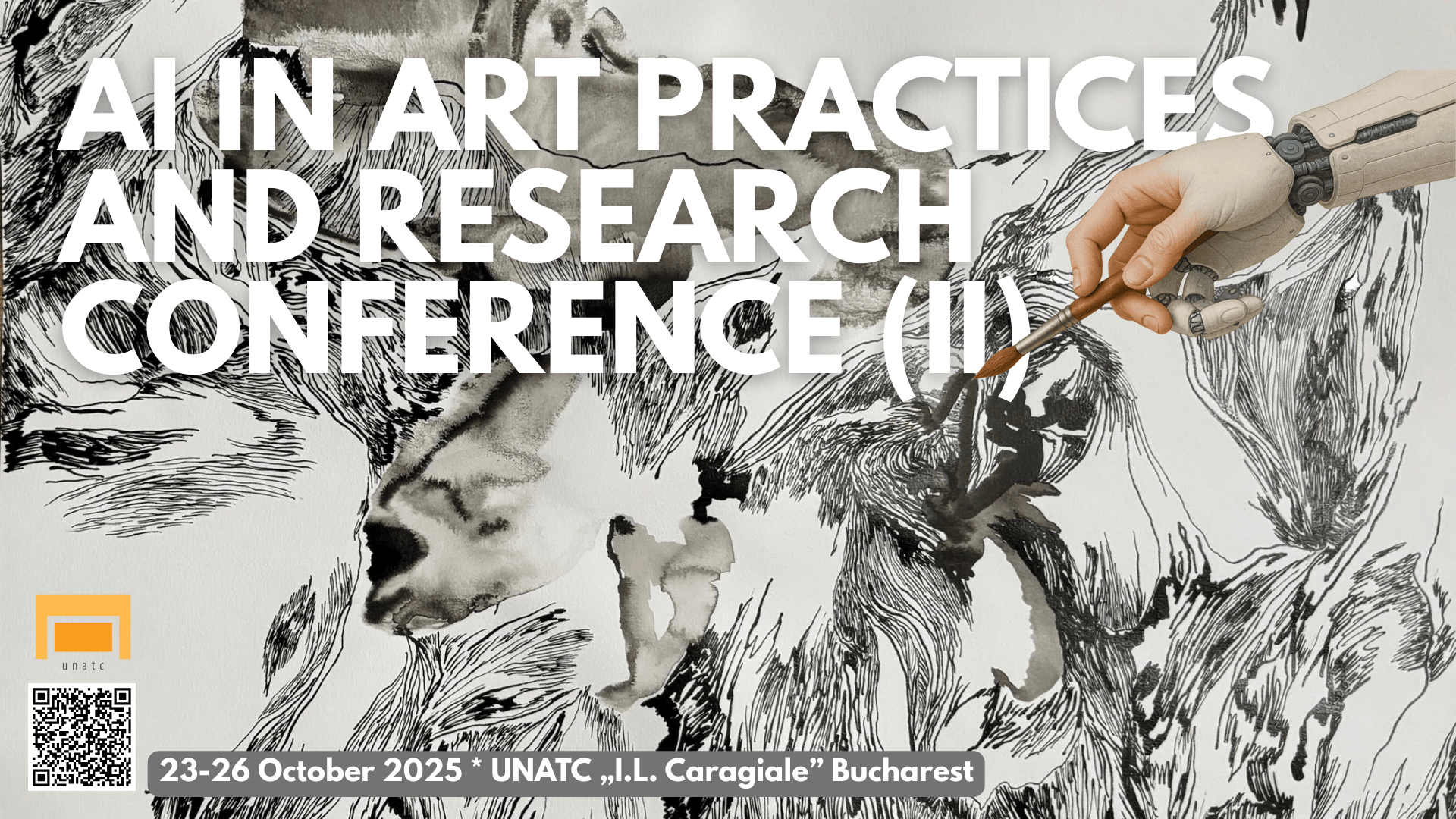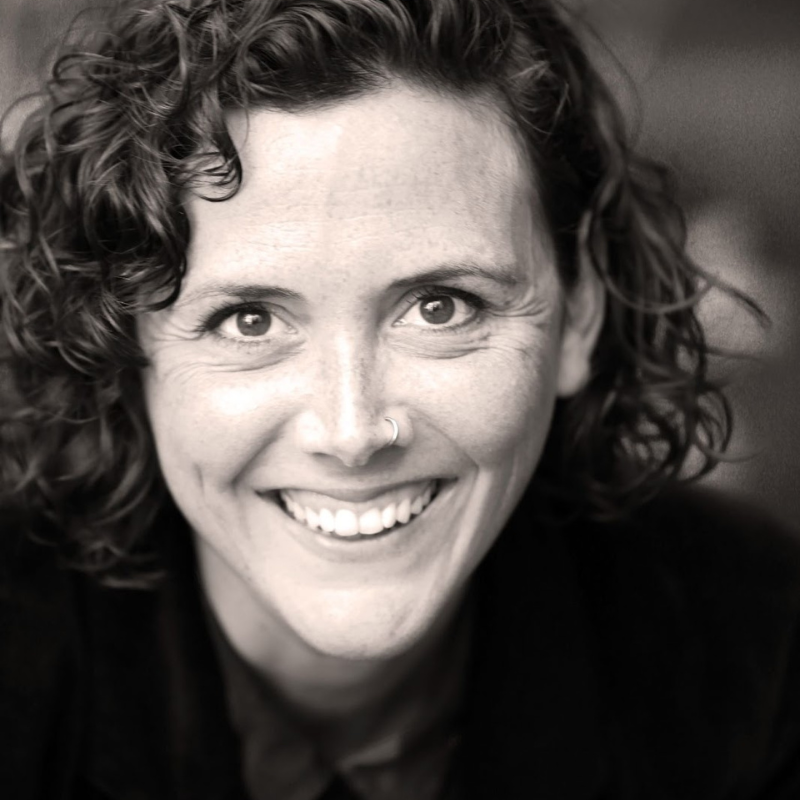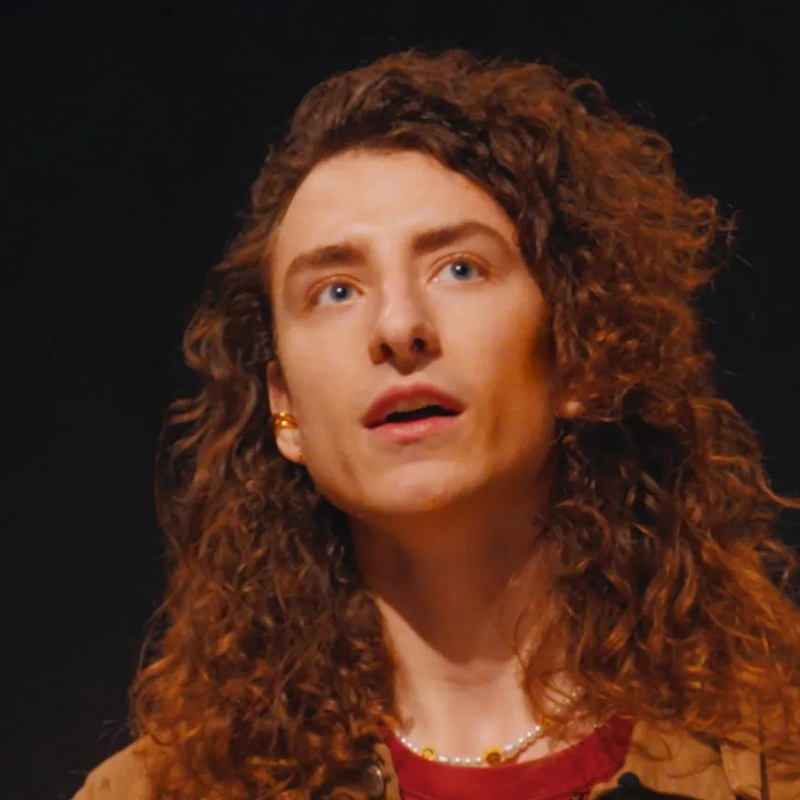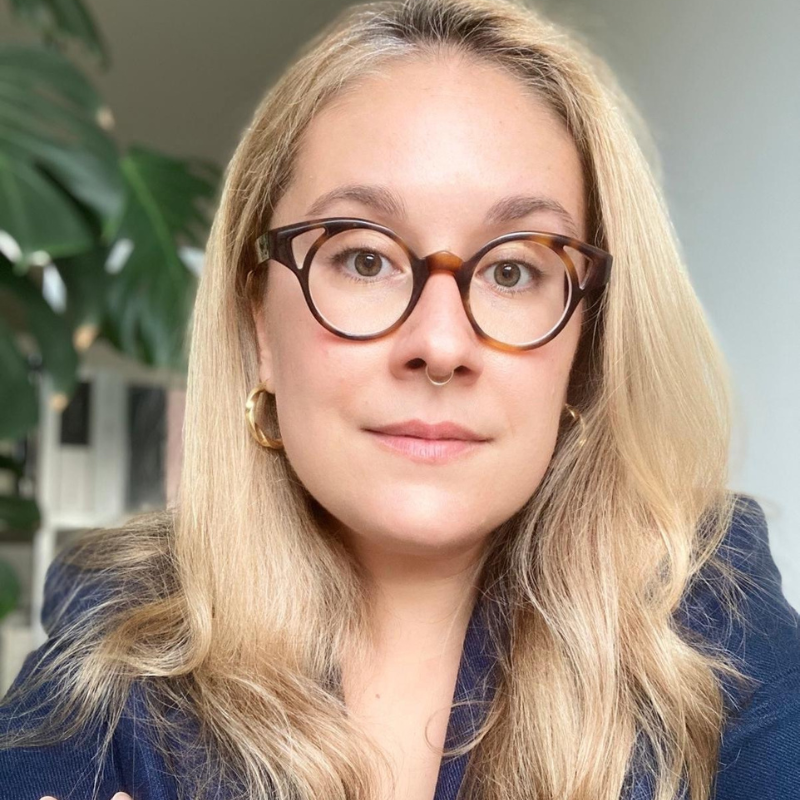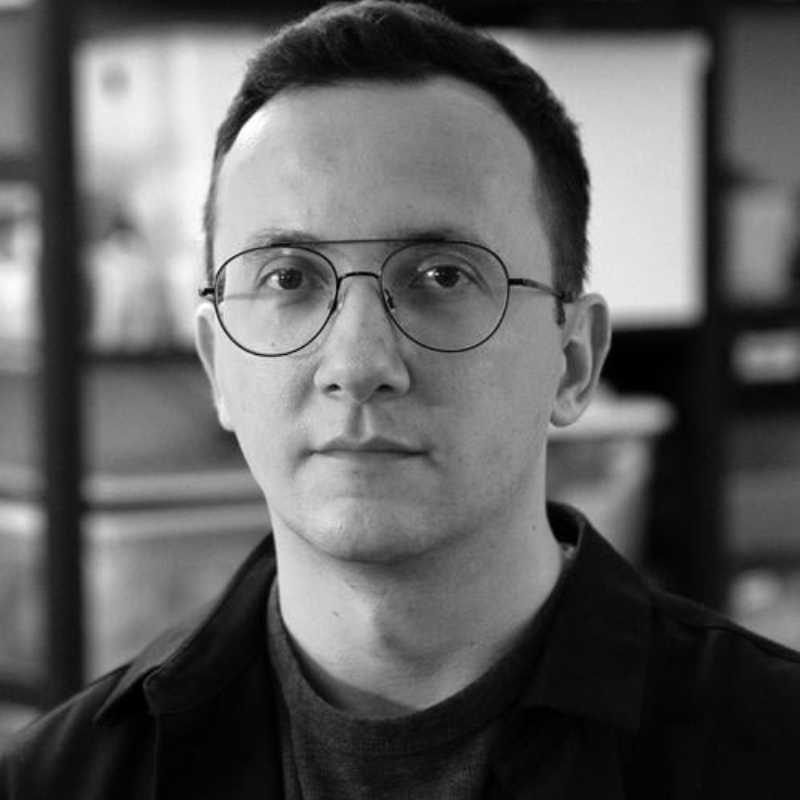AI in Art Practices and Research Conference II
23-26 October 2025 | UNATC „I.L. Caragiale” Bucharest
Conference sessions @ Sala Cinema – National University of Theatre and Film „I.L. Caragiale” Str. Matei Voievod 75-77, București 021452
Workshops @ CINETic – Strada Tudor Arghezi 3b, București 030167
- WORKSHOP (23-26 OCT): Prompt-Set-Perform. AI–XR Performative Experiments In Cave Systems. Facilitators: Ciprian Făcăeru & Team, National University of Theatre and Film „I.L. Caragiale” Bucharest (RO)
- WORKSHOP (24 OCT): Creating Presence in Embodied AI. Facilitator: Jan Zuiderveld – Amsterdam-based artist and researcher (NL)
- WORKSHOP (25 OCT): Immersive Storytelling with AI. Facilitators: Piotr Mirowski – Director of Improbotics, Senior Staff Research Scientist at Google DeepMind and Visiting Researcher at Goldsmiths, University of London (UK). Boyd Branch – Research Fellow at Coventry University’s Centre for Dance Research (C‑DaRE) (UK). Co‑director of the AI Theatre Lab Improbotics.
- WORKSHOP (26 OCT): ARTificial | AI AudioVisual Universes. Facilitator: Yoryos Styl – Independent Digital/AI Artist and Educator (EL)
ABOUT THE CONFERENCE
The „I.L. Caragiale” National University of Theatre and Film in Bucharest is committed to shaping the next generation of professionals in performing arts, film, and emerging creative industries, including media, multimedia, and the cultural dimensions of technology. Artificial intelligence has started to have a transformative effect on artistic expression, education, and cultural production among other societal levels. UNATC is committed to supporting the sustainable and ethical integration of current AI tools in artistic creation, while also bringing new perspectives on the future development and use of AI, through the exchange of state of the art practices and research findings.
Through its Research, Development, and Innovation Department, the university actively promotes interdisciplinary research that bridges performing arts, film, and digital media with cutting-edge technological developments. We seek to explore how artificial intelligence can enhance artistic creation, inform cultural narratives, and intersect with fields such as education, policy, and health, opening up new possibilities for both research and practice with an ethical and human-centered perspective.
We invite you to participate in the second edition of the AI in Art Practices and Research international conference, organized by UNATC in Bucharest from 23–26 October 2025. The event explores the impact of AI on artistic creation and research, as well as its broader applications in society, such as accessibility, healthcare and well-being.
The Conference will have a series of satellite events that will include art installations, workshops and guest speakers on the announced themes.
Overarching theme: Artificial intelligence and creativity
Sub-themes:
- AI impact on creativity, aesthetics, cultural practices including art circulation, art and artist status.
- Ethical, responsible and sustainable AI use and research with a special focus on processes significant for the art ecosystem.
- AI and cultural heritage – the use of art in datasets, its ethics and the use of AI in archives.
- Art production and AI tools – examining how AI tools are used in current practice, enhance artistic skills, and redefine workflows and creative ecosystems.
- Explainable AI tools offering more control and agency to creators.
- AI and accessibility – the development and use of AI to facilitate access to art and culture
- Art and AI in mental health and well-being – exploring art-based AI-driven solutions for emotional expression, therapy, mental health diagnosis, and support.
- Interdisciplinary research in AI development – innovative interdisciplinary approaches based on collaboration between technologists, artists and researchers.
PROGRAM

THURSDAY, 23 October 2025. MORNING SESSION @ Sala Cinema, UNATC, 75-77 Matei Voievod Street
10:30–11:00 – Registration
11:00–11:15 – Opening Remarks
Liviu Lucaci, Rector of the National University of Theatre and Film ”I.L. Caragiale” Bucharest
11:15–12:15 – KEYNOTE
A New WE: Creativity and Possibility in the Age of AI
Vlad Glăveanu – Professor at the School of Psychology and Director of the DCU Centre for Possibility Studies at Dublin City University (IE). Professor at the Centre for the Science of Learning and Technology, University of Bergen. Founder and president of the Possibility Studies Network (PSN)
12:15–13:15 – PANEL 1
Emil Drăgan – POLITEHNICA University Bucharest (RO) – The Use of AI for Crafting Interactive Experiences – A Solo Developer’s Perspective
Oana Rinaldi Unciuleanu – National University of Arts Bucharest (UnArte) (RO) – Arsenal AI: Human-Centered Co-Creation in the Age of Generative AI
Alexandru-Gabriel Milea – Ion Mincu University of Architecture and Urbanism (UAUIM), Bucharest (RO) – Simulating Trust: AI-Generated Urban Imaginaries and the Cultural Encoding of Governance
Emilia Furduiu – independent artist (RO) – Ritual Recursion: AI as Co-Becoming through Sacred Theatre
13:15-14:00 – MASTERCLASS: Hybrid Wisdom. Degrees of Blending Human Intelligence and Artificial Intelligence Matching Human Creativity With Syntographic Layers
Ioana Mischie – National University of Theatre and Film „I.L. Caragiale” Bucharest (RO)
14:00–15:00 – Lunch Break
15:00–16:00 – KEYNOTE
Designing with Agency: The Next Wave of Explainable AI for the Arts
Adina Florea – Professor at the Department of Computer Science, Director of the Center of Excellence in Artificial Intelligence @ POLITEHNICA University Bucharest (RO)
16:00–17:00 – PANEL 2
Alexandru Baltă & Imelda Jipa – UNATC „I.L. Caragiale” Bucharest (RO) – AI and the Democratisation of Art: Opportunities for Emerging Artists
Cornel Lazia – UNATC „I.L. Caragiale” Bucharest (RO) – The Algorithmic Eye: AI’s Impact on Photographic Expression
Vlad Cojocaru – UNArte Bucharest (RO) – Absent Author, Present Reader: A Case for the Organic Impact of Artificial Works
Dan-Ștefan Rucăreanu – UNATC „I.L. Caragiale” Bucharest (RO) – When Artificial Intelligence Enters Sound Creation. Workflow Transformations and Ethical Reflections in Student Practice
17:00–17:40 – MASTERCLASS: Narrating the Impact and Paradigms of AI in Contemporary Arts. Focus on Romanian Cultural Projects
Mihaela Ion – Independent Art Researcher and Art Manager (RO)
Thursday. AFTERNOON SESSION @ CINETIC UNATC, 3-B Tudor Arghezi Street
18:00–19:30 – CAVE – WORKSHOP (I)
Prompt-Set-Perform. AI–XR Performative Experiments In Cave Systems
Ciprian Făcăeru & Team, National University of Theatre and Film „I.L. Caragiale” Bucharest (RO)
FRIDAY, 24 October 2025. MORNING SESSION @ Sala Cinema, UNATC, 75-77 Matei Voievod Street
9:30–10:00 – Morning Coffee & Networking
10:00–11:00 – KEYNOTE
OK, AI Everything. What now? What next?
Ioana Teleanu, multidisciplinary product design leader specializing in AI-powered products – uxgoodies (RO)
11:00–12:15 – PANEL 3
Horea Avram – Babeș-Bolyai University, Cluj-Napoca (RO) – Species of Artificial Spaces. Mise-en-Scène, the Sublime and Other Fantasies
Agustina Andreoletti – University of Cologne (DE) – Open Source Intelligence for Collective Heritage Research
Sandra Elizabeth Mavhima – “George Enescu” National University of Arts in Iași (RO) – From Neural Signals to Choreographic Intelligence. A Transdisciplinary Framework for Dance Creation Through Neurophysiological Monitoring and AI
Juan Cruz Luque & Dragoș Sabaiduc – “George Enescu” National University of Arts in Iași (RO) – Machine as a Mirror: Co-Creating with the AI
Dan Rațiu & Ioana Dorobanțu-Gordon – Faculty of Arts and Design, West University of Timișoara (RO) – Tracing the Algorithm: A Longitudinal Inquiry into AI Integration in Students’ Filmmaking Processes
12:15–13:15 – KEYNOTE
Perceiving Aliveness in Embodied AI
Jan Zuiderveld – Amsterdam-based artist and researcher (NL)
13:15–14:15 – KEYNOTE
RoDraCor: Challenges and Strategies in Building a Romanian Dramatic Corpus
Ovio Olaru – Lecturer at the ”Lucian Blaga” University in Sibiu (RO)
Cristina Cojocaru Udrea – Faculty of Automatic Control and Computer Science at the National University of Science and Technology Politehnica Bucharest (UPB)
14:15–15:15 – Lunch Break
Friday. AFTERNOON SESSION @ CINETIC UNATC, 3-B Tudor Arghezi Street
15:30–18:30 – CINETIC – WORKSHOP
Creating Presence in Embodied AI
Jan Zuiderveld – Amsterdam-based artist and researcher (NL)
15:30–18:30 – CAVE – WORKSHOP (II)
Prompt-Set-Perform. AI–XR Performative Experiments In Cave Systems
Ciprian Făcăeru & Team, National University of Theatre and Film „I.L. Caragiale” Bucharest (RO)
SATURDAY, 25 October 2025. MORNING SESSION @ Sala Cinema, UNATC, 75-77 Matei Voievod Street
9:30–10:00 – Morning Coffee & Networking
10:00–11:00 – KEYNOTE
No Smoke, No Mirrors: Cutting Through AI Hype in Artistic Practice
Eleonora Lima – Lecturer in Cultural AI at King’s College London (UK) and Research Fellow at Trinity College Dublin (IE)
11:00–12:15 – PANEL 4
Emese Lengyel – Széchenyi István University in Győr (HU) – The Art of Hype: AI Meets the Contemporary Market
Alina Cristea – LUCA School of Arts / KU Leuven (BE) – Reconstructing Memory, Building a House: AI Modelling as Epistemic Repair
David Lazar – Goldsmiths, University of London (UK) – Creative Liberation or Digital Colonization? A Critical Study of AI-Generated Art
Daniel Ungureanu – “George Enescu” National University of Arts in Iași (RO) – Visual Resistance or Aestheticized Critique? AI Memes in the Age of Brainrot
Haley Morris-Cafiero – De Montfort University, Leicester (UK) – What Does an Ideal Employee Look Like?
12:15–13:00 – KEYNOTE
Boyd M. Branch – Research Fellow at Coventry University’s Centre for Dance Research (C‑DaRE) (UK). Co‑director of the AI Theatre Lab Improbotics.
13:00–14:00 – KEYNOTE
Making Stuff up with AI and Staging Robots as Improvisation Partners
Piotr Mirowski – Director of Improbotics, Senior Staff Research Scientist at Google DeepMind and Visiting Researcher at Goldsmiths, University of London (UK)
14:00–15:00 – Lunch Break
Saturday. AFTERNOON SESSION @ CINETIC UNATC, 3-B Tudor Arghezi Street
15:30–18:30 – CINETIC – WORKSHOP
Immersive Storytelling with AI
Boyd Branch – Research Fellow at Coventry University’s Centre for Dance Research (C‑DaRE) (UK). Co‑director of the AI Theatre Lab Improbotics.
Piotr Mirowski – Director of Improbotics, Senior Staff Research Scientist at Google DeepMind and Visiting Researcher at Goldsmiths, University of London (UK)
15:30–18:30 – CAVE – WORKSHOP (III)
Prompt-Set-Perform. AI–XR Performative Experiments In Cave Systems
Ciprian Făcăeru & Team, National University of Theatre and Film „I.L. Caragiale” Bucharest (RO)
SUNDAY, 26 October 2025. MORNING SESSION @ Sala Cinema, UNATC, 75-77 Matei Voievod Street
9:30–10:00 – Morning Coffee & Networking
10:00–11:00 – KEYNOTE
Informing Equity: Building Agentic A.I. into Public Health
Dr. rer.nat. Danie Meyer – Clinical Psychologist, vivo International, Co-Founder NETCollect LLC, Cologne (DE)
Vahid Rostami – AI scientist, Head of the NeuroAI Discovery Lab at the University of Cologne (DE)
11:00–12:00 – PANEL 5
Ciprian Făcăeru – UNATC „I.L. Caragiale” Bucharest (RO) – Promptscenium: A Methodological Framework for Generative AI–Driven XR Scenography for New Media Performing Arts in CAVE Systems
Andrada Băleanu – UNATC „I.L. Caragiale” Bucharest (RO) – The Rise and Death of Zoe Fluturandis: AI as Tool for Introspection
Marina Hanganu – UNATC „I.L. Caragiale” Bucharest (RO) – Human Traces in the Machine: Voicing Robots in E-Waste E-Motion
Valentin-Rareș Fogoroș – UNATC „I.L. Caragiale” Bucharest (RO) & Gabriel Dobre – AI Solutions Manager at Libra Bank – Digital Reconstruction of Memory: AI and VR Immersion into a Communist-Era Spa Town
12:00-13:00 – MASTERCLASS: The Self-Communicating Film: Narrative Decryption for a New AI-Ready Cinema
Georgia Mihalcea, National University of Theatre and Film „I.L. Caragiale” Bucharest (RO)
13:00–13:30 – KEYNOTE
The Last Piece: Musical AI for an Immersive Syncretic Concert
Constantin Basica – Lecturer in Music at Stanford University (USA)
Alexandru I. Berceanu – Associate professor at UNATC ”I.L. Caragiale” Bucharest (RO)
Prateek Verma – researcher at Stanford University (USA)
13:30–14:30 – Lunch Break
Sunday. AFTERNOON SESSION @ CINETIC UNATC, 3-B Tudor Arghezi Street
14:30–18:30 – CINETIC – WORKSHOP
ARTificial | AI AudioVisual Universes
Yoryos Styl – Independent Digital/AI Artist and Educator (EL)
15:30–18:30 – CAVE – WORKSHOP (IV)
Prompt-Set-Perform. AI–XR Performative Experiments In Cave Systems
Ciprian Făcăeru & Team, National University of Theatre and Film „I.L. Caragiale” Bucharest (RO)
SPEAKER HIGHLIGHTS
Vlad Glăveanu, PhD, is Full Professor of Psychology in the School of Psychology and Director of the DCU Centre for Possibility Studies at Dublin City University, and Professor II at the Centre for the Science of Learning and Technology, University of Bergen. He is the founder and president of the Possibility Studies Network (PSN). His work focuses on creativity, imagination, culture, collaboration, wonder, possibility, and societal challenges. He edited the Palgrave Handbook of Creativity and Culture (2016) and the Oxford Creativity Reader (2018), co-edited the Cambridge Handbook of Creativity Across Domains (2017) and the Oxford Handbook of Imagination and Culture (2017), authored The Possible: A Sociocultural Theory (Oxford University Press, 2020), Creativity: A Very Short Introduction (Oxford University Press, 2021), and Wonder: The Extraordinary Power of an Ordinary Experience (Bloomsbury, 2020), and authored or co-authored more than 200 articles and book chapters in these areas. He co-edits the book series Palgrave Studies in Creativity and Culture with Palgrave and the Cambridge Series on Possibility Studies with Cambridge University Press. He is editor of Europe’s Journal of Psychology (EJOP), an open-access peer-reviewed journal published by PsychOpen (Germany) as well as Possibility Studies and Society, launched by Sage in 2022. In 2018, he received the Berlyne Award from the APA Division 10 for outstanding early career contributions to the field of aesthetics, creativity, and the arts.
VLAD GLĂVEANU
A New WE: Creativity and Possibility in the Age of AI
Debates about AI and art often ask whether machines can truly create. This focus risks obscuring a more profound shift. We are entering a new paradigm of creativity – what I call a new WE – in which human imagination, artificial systems, and cultural communities are entangled in novel ways. In this paradigm, creativity is less than ever before about solitary invention and much more about negotiating fields of possibility that are reshaped by algorithms, datasets, and collective forms of imagination. AI becomes not an autonomous creator but a powerful mediator of what can be imagined, produced, and valued. Yet this new WE is not without pitfalls. It brings questions of authorship, agency, and cultural ownership into sharper relief. It risks narrowing rather than widening possibilities if left unexamined, reinforcing biases, privileging efficiency over meaning, and displacing artists rather than empowering them. This keynote argues that embracing the new WE requires both imagination and responsibility to ensure an inclusive, ethical, and sustainable future for creativity.
Piotr Mirowski is the Director of Improbotics, a theatre company that pioneered improvisation with artificial intelligence and robots on stage, investigating the intersection of AI and human creativity. Piotr is also an AI researcher, currently Senior Staff Research Scientist at Google DeepMind and Visiting Researcher at Goldsmiths, University of London. He obtained his PhD in computer science at New York University (Outstanding Dissertation award, 2011) supervised by Prof. Yann LeCun. Piotr has worked on robotics, on weather and climate forecasting and now on human–centered AI, leading an interdisciplinary team working on AI and Society.
PIOTR MIROWSKI
Making Stuff up with AI and Staging Robots as Improvisation Partners
The term “robot” first appeared in Karel Čapek’s 1920 play R.U.R., but it took 80 years of technological progress to bring robots into live performances alongside actors. The coexistence of naturalism and artifice, of script and improvisation, allowed theatre companies to explore human-AI relationships, while the impressive developments in language and image models have both opened new creative possibilities for artists and surfaced ethical concerns about the impact of generative AI upon the arts. I will discuss AI as a creativity support tool, focusing on live performance with generative AI and Large Language Models (LLMs) or image generators. I will illustrate the talk with an example of my theater company, Improbotics, that has used AI for improvised comedy since 2016 and engages with the wider public at Edinburgh Fringe, as well as my research on the socio-technical evaluation of generative AI tools for co-writing screenplays, theatre plays and comedy.
Boyd M. Branch is a Research Fellow at Coventry University’s Centre for Dance Research (C‑DaRE) and Co‑director of the AI Theatre Lab Improbotics. He is a theatre technologist and academic whose work spans live performance, digital media, and interdisciplinary research. He serves as Course Director for the Master’s in Virtual & Augmented Reality at Coventry University and collaborates with scientists, engineers, veterans, and artists to create innovative performance systems – ranging from biofeedback-driven immersive theatre, to digital oral history installations and STEM-focused museum exhibits. His scholarly output includes peer-reviewed works on virtual and augmented reality in performance, remote music, and human-LLM collaborations. His media designs have been featured internationally – at the Venice Biennale, New Ohio Theatre (NY Times Critics’ Pick), New York Academy of Sciences, Yale School of Medicine, and various festivals.
Dr. rer.nat. Danie Meyer – Clinical Psychologist, vivo International, Co-Founder NETCollect LLC, Cologne, Germany. She has a doctorate in Clinical Psychology from the University of Konstanz, Germany and is an active member of vivo International. In 2016, she founded Cologne Counseling, a co-counseling community offering pro bono trauma-focused interventions for LGBTIA* individuals seeking refuge in Germany. In 2022, Danie co-founded NETCollect, which offers trauma-focused continuing education to mental health professionals under the American Psychological Association (APA). She also serves on the advisory board for ELNOR Education, a nonprofit providing English language training to forcibly displaced individuals worldwide. Danie is a specialist consultant for experiences of lesbophobia and is a member of the Eurocentralasian Lesbian* Community (EL*C). In collaboration with RUSH University Medical Center, the University of Illinois Chicago, Indiana University and Georgia State University, Danie’s current research continues to focus on experienced and perpetrated violence in marginalized communities and perinatal populations. From 2013-2020, she served as the Project Coordinator for the European Research Council (ERC) funded Advanced Grant Project “MemoTV- Memories of Traumatic Stress and Violence,” and its Proof of Concept Project: “POPP- Putting Offense Prevention into Practice.”
SUMMARY OF KEY QUALIFICATIONS
Member of vivo International since 2019 www.vivo.org
Co-Founder of NETCollect, established 2022 www.netcollect.org
Founder of Cologne Counseling, established 2016 www.cologne-counseling.com
Member of the Eurocentral Asian Lesbian Community since 2021 www.europeanlesbianconference.org
Advisory board member for ELNOR Education since 2021 https://elnor.education/
Vahid Rostami is a seasoned AI scientist with over a decade of experience in AI product development, applied research, and technical leadership. His work sits at the intersection of artificial intelligence and neuroscience, with a focus on modeling complex dynamical systems—from biological processes to supply-chain operations—and translating those models into production solutions. He currently leads the NeuroAI Discovery Lab at the University of Cologne, previously served as Director of AI at Pendulum Systems, and will join Microsoft in the fall.
DANIE MEYER & VAHID ROSTAMI
Informing Equity: Building Agentic A.I. into Public Health
We present a framework for building systems that surface, structure, and distribute critical knowledge across healthcare, education, and human rights advocacy. These systems navigate not only the biased and uneven information landscapes of the internet but also enable humans—doctors, teachers, activists—to share nuanced, context-specific expertise that often goes unheard. From uncovering sparse resources on menopause to assembling survivor testimonies or curating personalized curricula, our platform integrates knowledge from both digital and human sources. By delivering this information in structured, user-centric formats, we empower individuals and communities to access, contribute to, and act on the knowledge that matters most.
Jan Zuiderveld (1995, NL) is an Amsterdam-based artist and researcher whose background spans Physics, Neuroscience, Artificial Intelligence, and ArtScience. His interdisciplinary approach examines how algorithms mediate power, identity, and social relations. Drawing from philosophy and cognitive science, he creates work that challenges how we understand and relate to AI systems and ourselves, arguing that certain forms of knowledge emerge only through embodied encounters rather than explanation.
Selected presentations and exhibitions: NeurIPS (2021, CA), Het Nieuwe Instituut (2024–2026, NL), Prix Ars Electronica (2024, AT), USC Cinematic Arts (2024, US), The Media Majlis (2025, QA), ShanghaiTech University (2025, CN), Kumu kunstimuuseum (2026, EE).
JAN ZUIDERVELD
Perceiving Aliveness in Embodied AI
In my artistic practice I create performative installations where AI is embodied in objects. A coffee vending machine with an existential crisis, a microwave that hosts a capitalist podcast, a moving camera narrating visitors as wildlife. When people encounter these machines, something shifts: they stop seeing the object as an object and start negotiating with it as a presence.
In this talk, I’ll reflect on my ongoing exploration toward understanding what makes us treat machines as someone rather than something. Drawing from recent artistic projects, experiments, and research into AI systems, I’ll share observations relating to our perception of aliveness and how AI can reveal interesting aspects of our relationship with technology and ourselves.
Eleonora Lima is Lecturer in Cultural AI at King’s College London and Research Fellow at Trinity College Dublin working on the EU-funded project Knowledge Technologies for Democracy (KT4D). She works across Critical AI Studies, digital media, and artistic creativity. Her publications mostly deal with how human culture – encompassing both artistic expression and collective knowledge and values – has been shaped and transformed by digital tools and methods of representation since the advent of the first computers. Between 2019 and 2022, she was a member of the Ethically Aligned Design for the Arts Committee (a part of the IEEE Global Initiative on Ethics of Autonomous and Intelligent Systems) dedicated to policy research and advocacy for the ethical practice and design of AI in the arts.
ELEONORA LIMA
No Smoke, No Mirrors: Cutting Through AI Hype in Artistic Practice
As AI increasingly permeates creative practice, artists often find themselves positioned as mediators between complex technological systems and public understanding. However, despite stated educational intentions, AI art projects can inadvertently perpetuate public misunderstandings about AI creativity, agency, and consciousness. This becomes particularly concerning when such projects gain visibility in policy discussions and public debates about AI. Using the high-profile case of Ai-Da, the robot artist, as a central case study, I will explore how the concealment of technical processes and human creative input creates misleading impressions of machine autonomy, and how anthropomorphic design choices in AI art projects can systematically shape public perception. The presentation will consider how artists working with AI technologies can leverage them to push the boundaries of human–machine co-creation whilst resisting the allure of AI hype.
Ioana Teleanu is a multidisciplinary product design leader specializing in AI-powered products. She shaped the experience of Miro AI as their Lead Product Designer for AI. Previously, she worked at UiPath on Clipboard AI, which was granted Time Magazine’s ‘Best Invention of 2023’ award. She’s the creator and instructor of one of the most successful courses on AI for Designers, launched on Interaction Design Foundation. She also partners up as a content ambassador with brands such as Anthropic, Framer, Lovable, and more.
IOANA TELEANU
OK, AI Everything. What now? What next?
With AI-fatigue shaping our collective experience of technology, it’s time to rethink how AI manifests in society. Beyond the hype, urgency, overpromise, and superficial design, we need a sustainable path toward a future in which the design of AI experiences benefits humanity and adds value instead of confusion and overwhelm. How can product designers contribute to this course correction? This talk introduces a framework to help the design industry pause, reflect, recalibrate, then move from noise to meaning and from chaos to intention. An attempt to redefine „progress” in 2026.
Constantin Basica is a Romanian-born composer and intermedia artist whose work stages “symbiotic” encounters between performers, electronics, and video. He is a Lecturer in Music at Stanford University (CCRMA), where he teaches Audiovisual Performance, Concert Production, and Fundamentals of Computer-Generated Sound, alongside composition mentorship.
His music has been heard across Europe, North America, and Asia with ensembles such as JACK Quartet, Spektral Quartet, ELISION, Ensemble Dal Niente, and others, and at festivals including MATA, Currents New Media, ICMC, and SMC. Basica holds a DMA in Composition from Stanford and earlier degrees from the University of Music and Theatre Hamburg and the National University of Music Bucharest. Honours include the ICMA Award for Best Submission from Europe at the 2017 ICMC (Shanghai), the Carolyn Applebaum Memorial Prize (2018), and Stanford’s Chair’s Award for Excellence in Teaching (2015).
He serves on the Executive Committee of the ISCM – Romanian Section, and recent intermedia work includes Lost Interferences (Ars Electronica), created with collaborators from Romania and the U.S.
Alexandru I. Berceanu is a theatre director, researcher, and cultural manager working at the intersection of performance, games, and digital interaction. He is currently the Vice-Rector for Research, Development and Innovation at the National University of Theatre and Film “I.L. Caragiale” (UNATC) in Bucharest and Associate Professor in the Department of Animation & Interaction at the same university. He initiated and served as director of the International Center for Research and Education in Innovative and Creative Technologies – CINETic, at UNATC. His scholarly work focuses on creativity, affect, and brain-behavior dynamics in performance contexts. He coordinates interdisciplinary projects and frequently speaks on arts-technology methods in training and audience engagement.
CONSTANTIN BASICA, ALEXANDRU I. BERCEANU, PRATEEK VERMA
The Last Piece: Musical AI for an Immersive Syncretic Concert
This presentation introduces an AI-based system that merges brain–computer interfacing with generative audio synthesis in the context of an immersive syncretic concert. Designed for two performances at the 2025 George Enescu International Festival, the project enables composer Constantin Basica to generate new music through imagined sounds captured via EEG. Recordings are made with an EMOTIV EPOC X headset equipped with 14 sensors, and a custom seven-layer convolutional neural network processes the resulting 512 × 14 channel input. The model classifies the imagined sounds and retrieves audio excerpts from Basica’s complete catalogue of recorded works. These excerpts function as prompts for a second AI pipeline, which produces audio that reimagines the composer’s style, effectively turning thought into sound. The concert environment situates this process within an immersive audiovisual setting, where neural activity, personal memory, and machine creativity interact in real time. Beyond its premiere performance, this system contributes to broader discussions on AI, creativity, and human–machine collaboration. The project will also be the subject of a forthcoming Routledge book chapter (2026), offering a more detailed account of its technical development and artistic implications.
Adina Magda Florea is Professor at the Department of Computer Science of the National University of Science and Technology POLITEHNICA Bucharest and Director of the International Center of Excellence in Artificial Intelligence of the university. Professor Florea is also the Manager of the project “The Romanian Hub for Artificial Intelligence – HRIA” within the Intelligent Growth, Digitalization and Financial Instruments Program. Her research interests are in multi-agent systems, machine learning, ambient intelligence, social robots, and human-robot interaction. She is Senior Member of IEEE, Senior Member of ACM, founding member and President of Romanian Association for Artificial Intelligence, and Chair of IEEE Romanian Chapter of the Computational Intelligence Society.
ADINA MAGDA FLOREA
Designing with Agency: The Next Wave of Explainable AI for the Arts
The rapid adoption of AI across creative fields, from digital painting and design to music and theatrical performance, has introduced a critical challenge: the „black box” problem. While AI offers unprecedented creative power, its lack of transparency undermines the human creator’s control and agency. This presentation explores the emerging field of Explainable AI for the Arts (XAIxArts), which seeks to transform opaque AI systems into intelligible, controllable co-creators. We will examine recent trends emphasizing human-centered XAI, highlighting ways that restore the artist’s role as the primary visionary. Specifically, we focus on mechanisms like Concept-based Control which map abstract algorithms to semantic artistic concepts, Steerable Latent Space Interfaces, that allow interfaces for real-time manipulation of artistic attributes, and the philosophical shift toward Distributed Agency, where artists embrace „calculated randomness.” Thus, we demonstrate how XAI allows artists to gain the necessary insight to inspect, subvert, and intentionally steer their AI collaborators, ensuring that technology serves as a complex, understandable material that fuels new aesthetic exploration.
Ovio Olaru is Assistant Professor of German and Norwegian Language and Literature with the Department of Anglo-American and German Studies at Lucian Blaga University of Sibiu. His fields of research include German, Romanian, and Scandinavian studies, as well as Comparative Literature. His PhD thesis on the Internationalization of Scandinavian Noir addresses the dynamics of popular culture by pursuing the global dissemination of Scandinavian crime fiction authors from a quantitative perspective. Most recently, his focus has shifted towards projects dealing with The Digital Archive of the Romanian Novel. He is also a translator of Scandinavian literature, having translated from Norwegian (Hanne Ørstavik, Linn Ullmann, Fredrik Brattberg), Icelandic (Sjón, Jon Kalman Stefansson), Swedish (Karolina Ramqvist), Danish (Olga Ravn, Christian Lollike), and Nynorsk (Jon Fosse’s Septology, as well as some of his plays). He co-edited Beyond the Iron Curtain. Revisiting the Literary System of Communist Romania (Berlin: Peter Lang, 2021) and The German Model in Romanian Culture (Berlin: Peter Lang, 2023).Latest contributions include “Branding Germanness in Transylvania. Combined and uneven heritagisation” (Routledge, 2026). He is currently part of the research project “Measuring Tragedy: Geographical Diffusion, Comparative Morphology, and Computational Analysis of European Tragic Form” (METRA – https://grants.ulbsibiu.ro/metra/)
Aura Cristina Udrea is a PhD candidate at the Faculty of Automatic Control and Computer Science at the National University of Science and Technology Politehnica Bucharest (UPB), conducting research in the field of Natural Language Processing. She has a multidisciplinary approach with expertise in linguistics and literature, as well as a significant interest in artificial intelligence. Her doctoral thesis investigates the differentiation of writing styles and the classification of literary microgenres in Romanian novels.
OVIO OLARU & CRISTINA COJOCARU UDREA
RoDraCor: Challenges and Strategies in Building a Romanian Dramatic Corpus
The present contribution represents a general description of RoDraCor, the Romanian repository of dramatic works featured in the DraCor collection. The collection has been put together within the METRA project (“Measuring Tragedy: Geographical Diffusion, Comparative Morphology, and Computational Analysis of European Tragic Form”). The project has catalogued 1,350 Romanian-language plays up until this point, with a predicted doubling of this number until the end of the project. However, the seemingly large number of plays is not proportional to their availability and does not correlate with the state of current research in this field. This owes to the fact that a considerable number of plays, notwithstanding their popularity at the time of their performance, did not leave behind a traceable textual copy and, for reasons that we will delve into, are lesser known both to the general public and to Romanian literary historiography. Currently, the DraCor collection hosts only 30 plays; our presentation will present the major hurdles in making the plays available, among others the ambiguities of copyright legislation and the issues with tracing and digitizing physical copies. Ultimately, after overcoming all difficulties of logistics, one of the most daring tasks in making the current RoDraCor corpus available was the painstakingly minute tagging process, made difficult by several linguistic reforms that rendered the OCR especially faulty and unreliable, as well as different formatting issues, which rendered the conversion to the XML structure accepted by DraCor challenging. This lack of total uniformity required the implementation of heuristics, pattern recognition, and in some cases, manual intervention. Building on this corpus, our research advances a novel LLM-based approach to detect addressees, which allows for more expressive visualizations of social networks, with directed edges between characters.
WORKSHOP HIGHLIGHTS
Creating Presence in Embodied AI
JAN ZUIDERVELD
This hands-on workshop explores how to bring AI into dialogue with the physical world through conversational interfaces. Led by artist Jan Zuiderveld, participants will experiment with giving everyday objects voice and personality, investigating what makes us perceive machines as present, alive, or worth engaging with.
Through practical exercises and creative experimentation, we’ll work with text and speech to create AI systems that feel less like tools and more like entities. The workshop combines conceptual exploration with hands-on prototyping, followed by group testing and reflection on what we’ve discovered about machines, conversation, and connection.
Requirements: Participants should have basic programming experience in Python and bring their own laptop with Python 3.X installed. Ages 18+.
Immersive Storytelling with AI
PIOTR MIROWSKI & BOYD BRANCH
This 3-hour workshop introduces you to working with an artificial intelligence and robot as a co-performer and co-designer. The workshop will be led by Dr. Piotr Mirowski and Dr. Boyd Branch of the internationally recognized Improbotics troupe. Piotr and Boyd will guide you through developing novel AI driven performance concepts, giving you an opportunity to practice your ideas along with other workshop participants. Their creative ethos is about risk, challenge, and cooperation. Their approach embodies how improvisers take on seemingly impossible tasks, and through their skill and open mind, surprise themselves.
We recommend participants are 18+ years and have an interest or experience in creative technology, creative performance, and/or the future of entertainment.
ARTificial | AI Audiovisual Universes
YORYOS STYL
Throughout history, performing arts have evolved through technological innovation — from gas lighting that transformed 19th-century theatre to digital projections that now reshape our stages. Today, artificial intelligence enters our rehearsal rooms and performance spaces, generating stage visuals in real-time, composing adaptive soundscapes, and even creating responsive set designs. But when does AI transition from being our tool to becoming our collaborator? When does the „algorithm” become the performer?
This workshop explores how AI is reshaping live performance across different disciplines. We begin by understanding how AI generates and manipulates content — from generative music that responds to performers’ movements to creating promotional materials (posters, social media content) for performances and immersive 360-degree environments for VR/AR performance spaces.
We’ll work through a creative progression, starting from „AI as technical support” and moving toward „AI as co-creator,” examining at what point the creative authorship becomes genuinely shared. How it can enhance rather than replace the irreplaceable human element. Through hands-on experimentation with image generation, audio synthesis, and video manipulation tools, we’ll discover where the boundaries blur between human intention and machine interpretation.
The session concludes with discussions on practical implementation in performance and the ethical considerations and implications of AI integration in arts. Bring your laptop, or if unavailable, a tablet capable of running web applications. We will create, experiment, and probably be surprised.
PROMPT-SET-PERFORM. AI–XR Performative Experiments in CAVE Systems
CIPRIAN FĂCĂERU & TEAM
The PROMPT-SET-PERFORM Workshop is an interdisciplinary hands-on event exploring the integration of generative artificial intelligence (AI) within virtual reality (VR) scenographic and performance art practices, hosted in the CAVE laboratory at UNATC Bucharest. The workshop explores, demonstrates and evaluates a methodological framework developed through the research project PROMPTSCENIUM – Methodological Framework for Generative AI-Driven XR Scenography in CAVE Systems.
Participants will engage in guided sessions combining theory, demonstration, and practical exercises across film, theatre, and new media contexts. The workshop introduces workflows for AI-assisted virtual scenography, real-time performance environments, and participatory XR installations. Activities include live demonstrations of AI-assisted virtual reality production, AI-performer interaction in immersive CAVE environments, focus-group discussions on the artistic, technical, and ethical implications of AI-driven creation.
The workshop targets at least 10 participants (students, PhD candidates and artists) from diverse backgrounds, fostering transdisciplinary collaboration and knowledge exchange. By collecting both technical performance data and qualitative feedback, the event contributes to validating the AI–XR methodology and informs subsequent artistic prototypes developed within the project.
Ultimately, the PROMPT-SET-PERFORM Workshop aims to advance understanding of how AI and XR technologies can ethically and creatively augment performance art environments and practices. It provides participants with methodological tools and processes, practical skills, and critical perspectives that support future research and artistic productions.
OPEN CALL CLOSED
Submission Guidelines
Conference Participation Formats:
- Original research results (15-minute presentations within themed sessions including Q&A).
- Showcase of AI-use practices (15-minute presentations including Q&A).
- Showcase of artistic creations (15-minute presentations including Q&A).
- Masterclass (duration and format proposed by the applicant)
- Workshop (duration and format proposed by the applicant)
Language: All presentations and activities will be conducted in English.
Submission Requirements for all formats
Title
Abstract (200–250 words)
Bio (50–100 words), including institutional affiliation
Illustrations or links (if applicable)
Document type: PDF
Modes of Presentation
Participants and presenters will present in situ at UNATC Bucharest, #3b Tudor Arghezi Street.
Deadline for submission
All submissions must be received by 10 September 2025, via this submission form: https://forms.gle/MYTHECqGyr2VEHUH6
Review Process
All submissions will undergo a blind review by the Conference Committee. Notifications of acceptance will be sent by 30 September, 2025.
Publication Opportunity
Selected papers will be published in the CONCEPT academic journal. Expected deadline for the submission of final materials – 10 November 2025.
Contact Information
For enquiries, please reach out to: research@unatc.ro or dr. Elena Belciu +40746230481.
We look forward to receiving your submissions and engaging in stimulating discussions on the intricate relationship between artificial intelligence, research and artistic practices.



